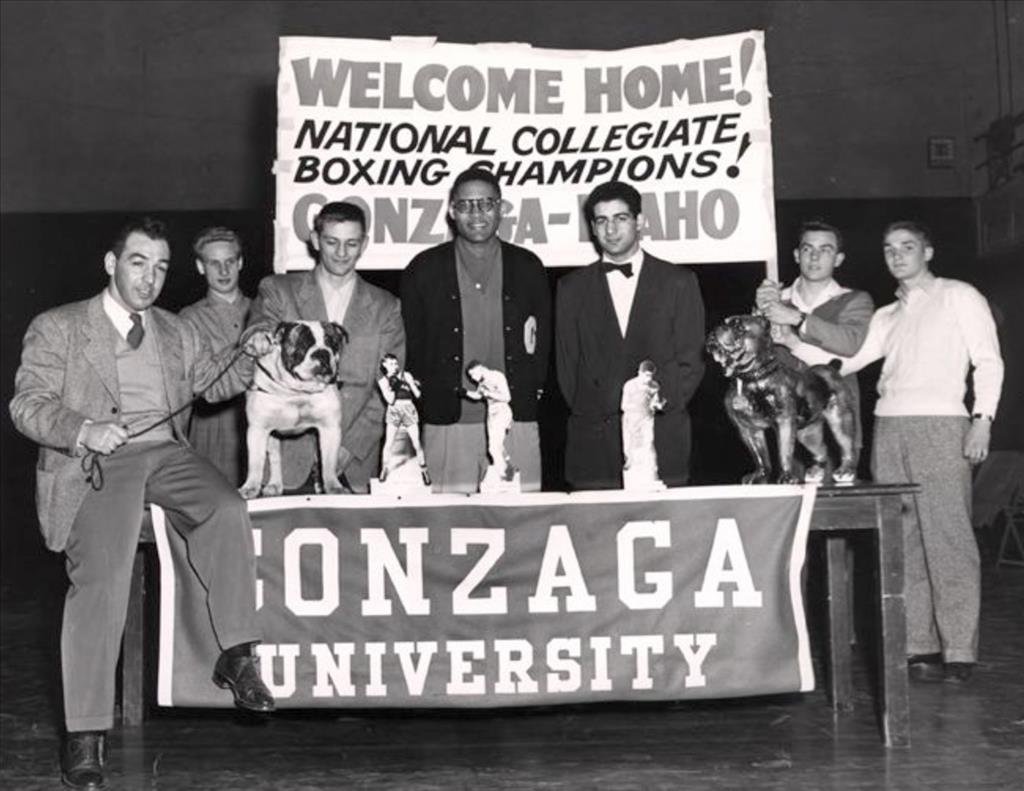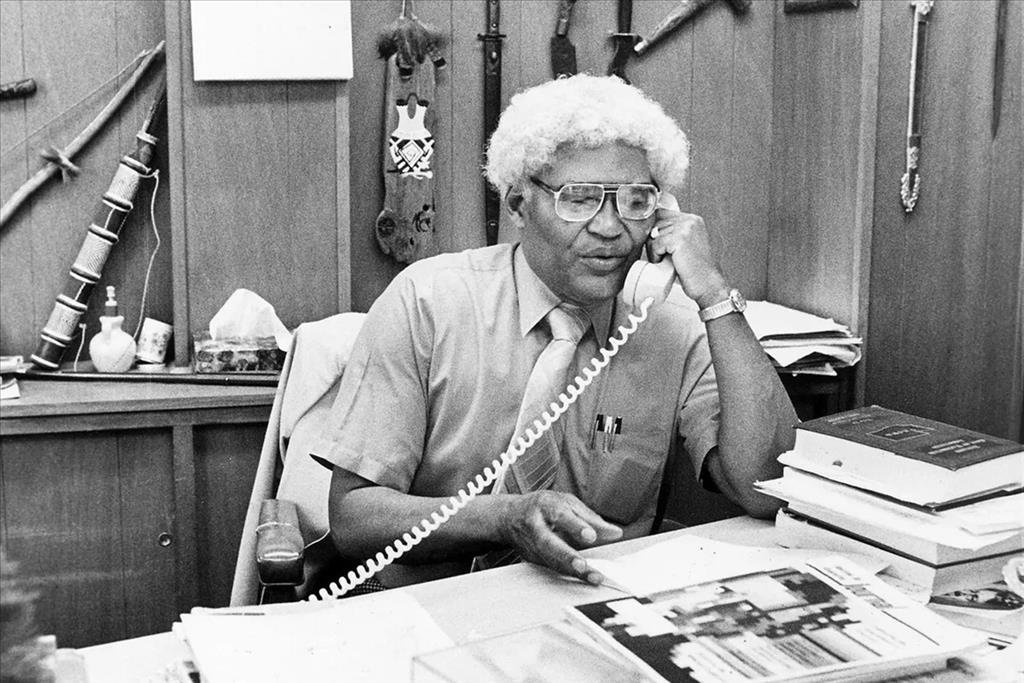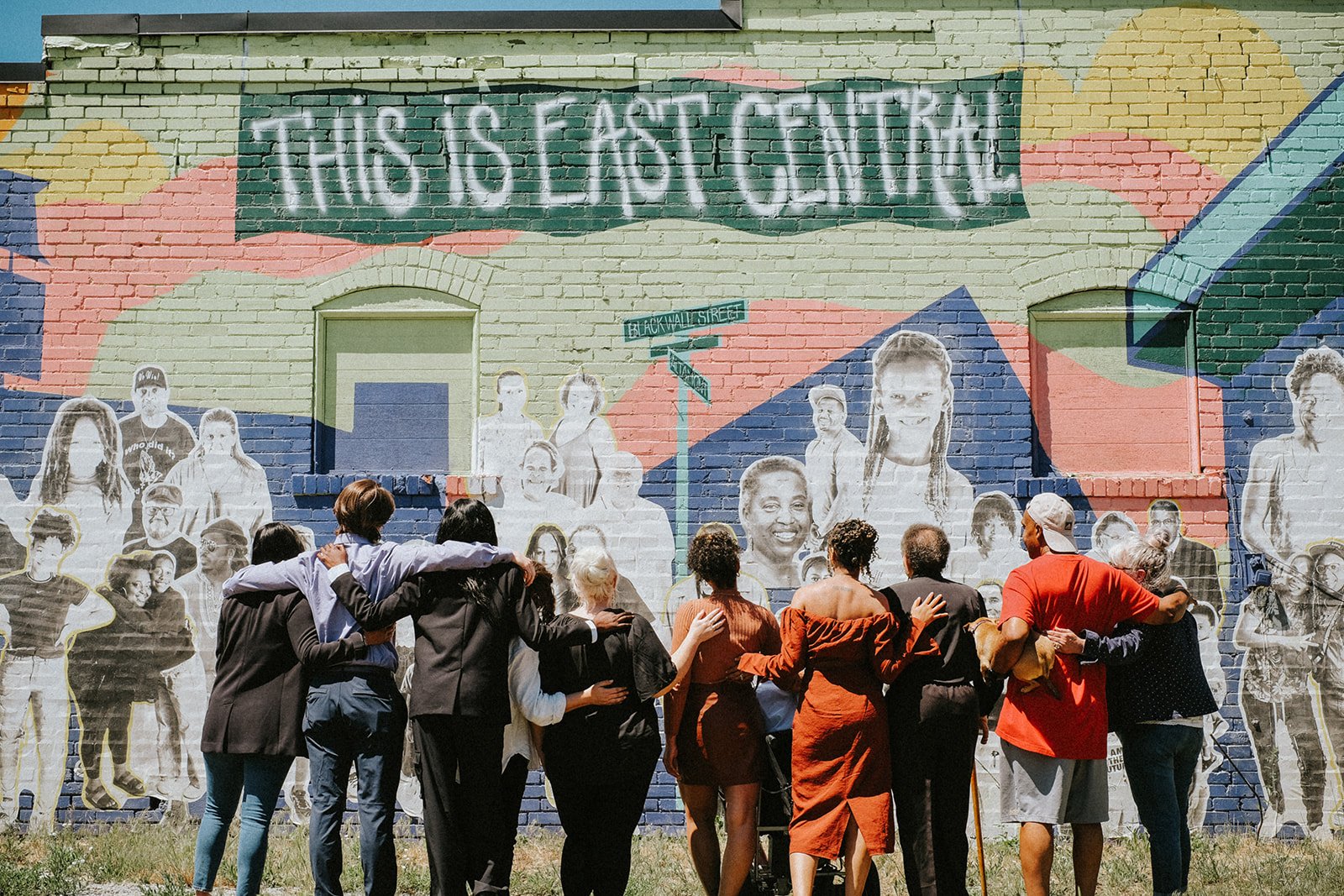Carl Maxey: A Life of Unwavering Commitment to Justice and Equality
Spokane lawyer Carl Maxey is pictured at home with his two sons: Beven, 18 (left), a standout athlete at Lewis and Clark High School, and Bill, 25, a law student at the University of Oregon. Maxey married his second wife, Merrie Lou, in the summer of 1974. This photo was taken in March 1975. (File photo, The Spokane Daily Chronicle)
Carl Maxey’s life is a powerful testament to resilience, determination, and a relentless pursuit of justice. Known as Spokane’s “Drum Major for Justice,” Maxey’s legacy as a civil rights attorney, boxer, and advocate for equality has left an indelible mark on Spokane, Washington, and beyond.
Early Life and Education
Born in 1924 in Tacoma, Washington, Carl Maxey faced adversity from the start. Orphaned at a young age, he spent much of his childhood in Spokane’s Sacred Heart Orphanage. Despite these early challenges, Maxey’s intelligence and determination set him apart.
After graduating from Gonzaga Preparatory School, Maxey attended Gonzaga University, where he found his footing both academically and athletically. At Gonzaga, he earned his law degree, becoming the first Black graduate of Gonzaga’s law school—a milestone that marked the beginning of his career as a trailblazing attorney.
Carl Maxey, center, after co-winning the National Collegiate Boxing Championship with the University of Idaho, ca. 1950
Photograph by Richard T. Lewis, courtesy Gonzaga University Digital Archive (gp_sp0510_02)
A Champion in the Ring
Carl Maxey’s time at Gonzaga was not limited to academics. He excelled as a boxer, eventually becoming an NCAA national boxing champion. His success in the ring taught him discipline, strategy, and fearlessness—qualities he carried into his legal career. Boxing also provided him with a platform to challenge stereotypes and inspire others, especially young people of color, to push boundaries and strive for excellence.
Civil Rights Leader and Attorney
After serving in the Army during World War II, Maxey returned to Spokane and embarked on a legal career that would define him as one of the most prominent civil rights figures in the Pacific Northwest. As an attorney, Maxey fought tirelessly against racial discrimination, police brutality, and systemic injustice. His cases often set precedents, and his advocacy extended to housing, employment, and education reform.
Maxey’s work wasn’t limited to the courtroom. He was deeply involved in Spokane’s civic life, lending his voice and expertise to community initiatives aimed at dismantling racial barriers. He represented individuals who had been wronged by discriminatory practices and often worked pro bono for those who couldn’t afford legal representation.
Carl Maxey in his office, March 1981
Courtesy Spokane Daily Chronicle
A Legacy Rooted in Spokane
Carl Maxey’s ties to Spokane were unshakeable. Though his work gained national attention, he remained committed to the city that shaped him. Maxey’s influence was felt in Spokane’s schools, workplaces, and neighborhoods, where he advocated for inclusion and equity. His efforts laid the groundwork for future generations to build a more just and compassionate community.
In recognition of his contributions, Spokane has honored Maxey in numerous ways, including the establishment of the Carl Maxey Center. This center continues his mission by fostering cultural, economic, and social equity in Spokane’s African American community.
Remembering Carl Maxey
Carl Maxey passed away in 1997, but his legacy endures. As a civil rights pioneer, a fierce attorney, and a community leader, he remains an enduring symbol of hope and progress. Through his example, Carl Maxey showed that one person’s commitment to justice can inspire transformative change.
Today, the Carl Maxey Center stands as a living tribute to his vision, ensuring that his work continues to empower Spokane’s African American community and uphold the principles of equality and fairness for all.
Staff and mural at The Carl Maxey Center located at 3114 5th Ave in Spokane, Washington




